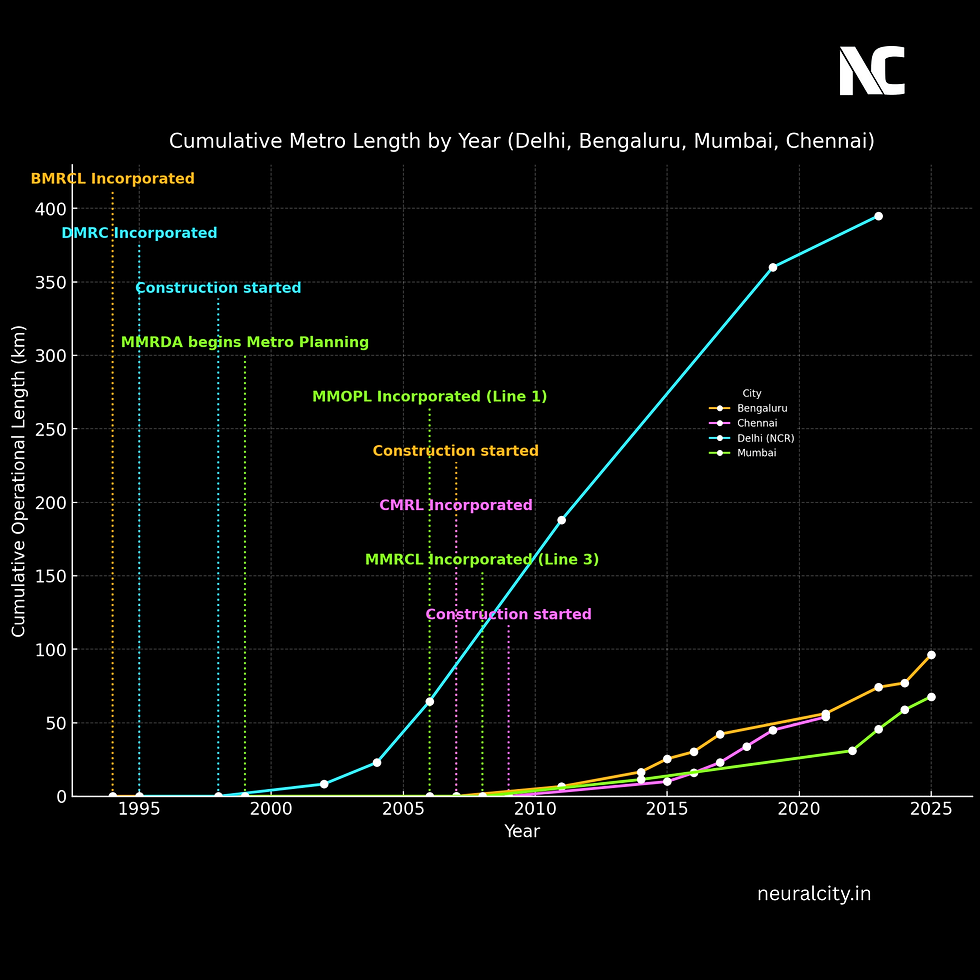Unlocking Cleaner Cities Through Community Engagement: The Power of Incentives
- Neural City Team

- Aug 2, 2023
- 3 min read
Indian cities, bustling with life and culture, also grapple with pressing issues such as traffic congestion, waste management, and overall congestion. One critical aspect underlying these challenges is the relatively low level of active citizen participation in shaping the urban environment for the better.
Low participation over a sustained period of time also points out to the low sense of ownership, pride and responsibility towards public infrastructure.
Despite government initiatives like the Swachh Bharat Abhiyan, the desired impact was limited due to insufficient community engagement. The question arises: How can we ignite a collective spirit of involvement in city transformation?
Gamification of social incentives and cleanliness competitions at ward level seems to be a winner to drive this behavioural change.

Image Credits: Times of India
Incentives as Catalysts for Positive Change
Imagine a scenario where individuals are rewarded for actively participating in activities that contribute to the cleanliness and upkeep of their cities. This is where the concept of social credits for volunteering comes into play.
By introducing an incentives program where citizens can earn social credits for tasks such as garbage cleaning and reporting damaged infrastructure, a wave of enthusiasm can be generated for community-driven activities, particularly focused on cleanliness.
Inspiring Examples from Around the World
Cities and countries across the globe have reaped impressive results by implementing social credits for volunteer work.
In Singapore, the National Environment Agency's (NEA) "Clean and Green Singapore" initiative encourages citizens to earn rewards through their eco-friendly actions. By participating in environmental projects and workshops, individuals accumulate Green Points that can be redeemed for discounts and even utilities rebates. This approach not only promotes eco-consciousness but also enriches the sense of community engagement.
Curitiba, Brazil's Public Transportation Rewards: Curitiba offers free bus rides to citizens who recycle a certain amount of materials. This incentive has contributed to higher recycling rates and reduced congestion on the roads.
We will do a dedicated post on how different cities around the world have involved their citizens in cleanliness drives.
Apart from greater community engagement, other transformative actions to enhance cleanliness, walkability and sustainability. We will delve into them in detail in our upcoming posts.
Monthly Community Cleanup Days: Inspired by regions like Arunachal, India, and Rwanda, implementing a mandatory monthly holiday dedicated to cleaning public areas could foster a stronger sense of collective responsibility. This practice not only enhances the city's aesthetics but also strengthens community bonds.
Stricter Littering Regulations: Drawing from the success of Indore, India, enforcing strict fines for public littering serves as a potent deterrent. By encouraging responsible waste disposal, cities can significantly reduce their litter problem and create a cleaner environment.
Shared Responsibility with Private Shops: Recognizing that littering in front of private shops impacts the overall cleanliness of the city, assigning a degree of responsibility to these establishments can spur more proactive cleanliness efforts.
Tackling Tobacco Spit: Addressing the challenge of tobacco spit through awareness campaigns and designated disposal units can enhance the city's cleanliness and public health.
Walkability as a Cornerstone of Sustainability
It's important to recognize that the quest for cleaner cities aligns seamlessly with the broader goal of sustainability.
Cleaner cities are inherently more walkable, creating a cycle of positive impact. By fostering community participation through incentives, we can not only address immediate challenges but also lay the groundwork for more sustainable urban environments.
In the journey toward cleaner, walkable, and sustainable cities, the concept of social credits for volunteering acts as a catalyst. It bridges the gap between citizens and city transformation, harnessing collective power to reshape urban spaces for the better. As we witness the success stories from various corners of the world, we are reminded that the spirit of community engagement, when fueled by incentives, holds the potential to create enduring change.




Comments